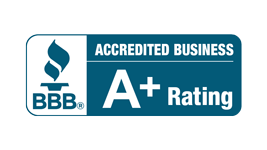What are the Misconceptions about Banruptcy?
Are you considering filing for bankruptcy but have heard concerning information about it? Below are a few common misconceptions about bankruptcy that have been proven false.
You Will Lose Everything You Have
Contrary to popular belief, bankruptcy laws are designed to provide individuals with a fresh start and a chance to regain financial stability. Depending on the type of bankruptcy you file, you may be able to keep many of your assets, including your home, car, and personal belongings.
Chapter 7 and Chapter 13 bankruptcies are the most common types filed by individuals. Under Chapter 7 bankruptcy, a trustee may liquidate non-exempt assets to repay creditors.
Many states have exemption laws that allow you to protect certain assets, such as your primary residence, vehicle, clothing, and necessary household items.
Chapter 13 bankruptcy, on the other hand, allows you to create a repayment plan based on your income and assets. This enables you to keep your property while gradually paying off your debts over a period of three to five years.
Bankruptcy does not provide a complete debt discharge for all types of obligations. Certain debts, such as student loans and tax debts, may not be eligible for discharge.
Bankruptcy can still provide relief by reorganizing your debts and making them more manageable.
You Will Never Get Credit Again
After filing for bankruptcy, you may experience some challenges when it comes to obtaining credit in the short term. Lenders may view your bankruptcy as a risk and be hesitant to extend credit to you. As time goes on and you take steps to rebuild your credit score, your creditworthiness will gradually improve.
One important factor in rebuilding your credit after bankruptcy is consistently making timely payments on any remaining debts and bills. This demonstrates responsible financial behavior and shows lenders that you are committed to improving your credit.
Obtaining a secured credit card or a small loan and making regular payments can also help to rebuild your credit history. [1]
Bankruptcy will stay on your credit report for a certain period of time. For Chapter 7 bankruptcies it typically remains on your credit report for ten years, while Chapter 13 bankruptcies stay on for seven years.
Many creditors and lenders understand that individuals who have gone through bankruptcy may have learned valuable lessons about financial responsibility.
Some even specialize in lending to individuals who have filed for bankruptcy in the past. These lenders often offer credit options with higher interest rates or stricter terms, but they provide an opportunity to rebuild credit and demonstrate responsible financial behavior.

Everyone Will Know You Filed Bankruptcy
While bankruptcy is a public legal process, it is not something that is widely publicized or readily available for all to see. Bankruptcy filings are recorded in court records, and certain individuals, such as creditors and financial institutions, can access this information.
Unless someone is actively searching for bankruptcy records, it is unlikely that they will stumble upon your personal bankruptcy filing.
People are not notified directly about your bankruptcy unless they have a legitimate reason to know, such as being directly involved in the bankruptcy process.
Employers cannot discriminate against you solely based on filing for bankruptcy. The Bankruptcy Code prohibits employers from firing or demoting employees solely because they have filed for bankruptcy.
Individuals facing overwhelming debt should not let the fear of judgment or the misconception of widespread knowledge deter them from seeking relief through bankruptcy.
If you are concerned about the impact of bankruptcy on your personal or professional life, it may be helpful to consult with an experienced bankruptcy attorney. They can guide you through the process and address any specific concerns you may have about privacy and disclosure.
You Can Pick and Choose Which Debts You List
The bankruptcy process is governed by specific laws and regulations, and one of the key principles of bankruptcy is the equal treatment of all creditors. This means that you cannot selectively choose which debts to include or exclude from your bankruptcy filing.
When you file for bankruptcy, you are required to provide a comprehensive list of all your debts, including credit card balances, medical bills, personal loans, and any other outstanding obligations.
This list is compiled in what is known as a bankruptcy petition and serves as a key document in the bankruptcy process.
Listing all your debts is not only a legal requirement but also ensures that all your creditors are treated fairly. Bankruptcy laws are designed to provide a fresh start to individuals and help them regain financial stability.
By including all your debts in your bankruptcy filing, you are giving yourself the best chance at achieving a clean slate and a debt-free future.
Intentionally excluding certain debts from your bankruptcy filing can have severe consequences.
Not only can it jeopardize the success of your bankruptcy case, but it may also be deemed as bankruptcy fraud. Bankruptcy fraud is a serious offense that can result in criminal charges and penalties.

Creditors Will Still Harass You
When you file for bankruptcy, an automatic stay is put into effect. This legal protection prevents creditors from taking any collection actions against you, such as calling you, sending letters, or filing a lawsuit. It provides a temporary reprieve and allows you to focus on the bankruptcy process without constant harassment.
The automatic stay is not a permanent solution. Creditors may still attempt to contact you, especially during the early stages of your bankruptcy case when they may not be aware of your filing.
Inform them about your bankruptcy filing and provide them with the necessary information, such as your case number and the contact information of your bankruptcy attorney.
Creditors may continue to harass you even after they have been notified of your bankruptcy. This can be frustrating and disheartening, but it’s important to know your rights. The Fair Debt Collection Practices Act (FDCPA) protects consumers from abusive and unfair debt collection practices.
If a creditor continues to harass you, you can file a complaint with the Consumer Financial Protection Bureau (CFPB) or even take legal action against them.
While bankruptcy can discharge many of your debts, there are certain types of debts that are not eligible for discharge. These include child support, alimony, certain tax debts, student loans (in most cases), and any debts incurred through fraudulent activities. Creditors may still pursue collection efforts for these types of debts even after your bankruptcy case is concluded.
Contact the Richard West Law Office today to schedule a consultation and take the first step towards a debt-free future. Don’t let misconceptions hinder your path to financial freedom any longer.
Source
[1] Frankel, R. S. (2023, September 18). Applying For Credit Cards After Bankruptcy. Forbes Advisor. https://www.forbes.com/advisor/credit-cards/when-can-i-apply-for-a-credit-card-after-bankruptcy/




